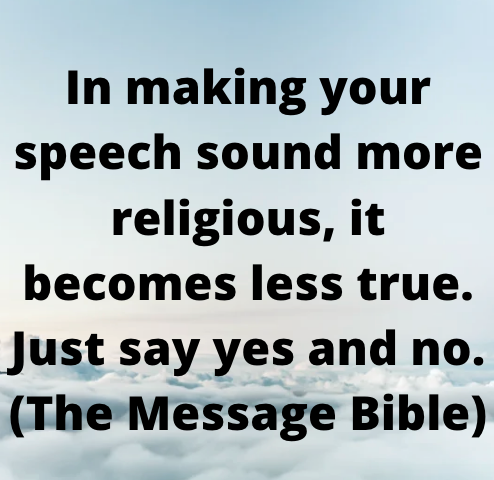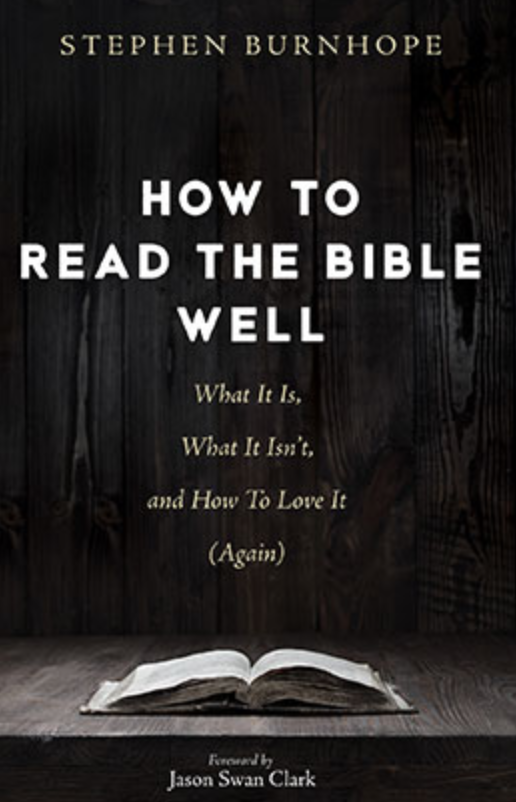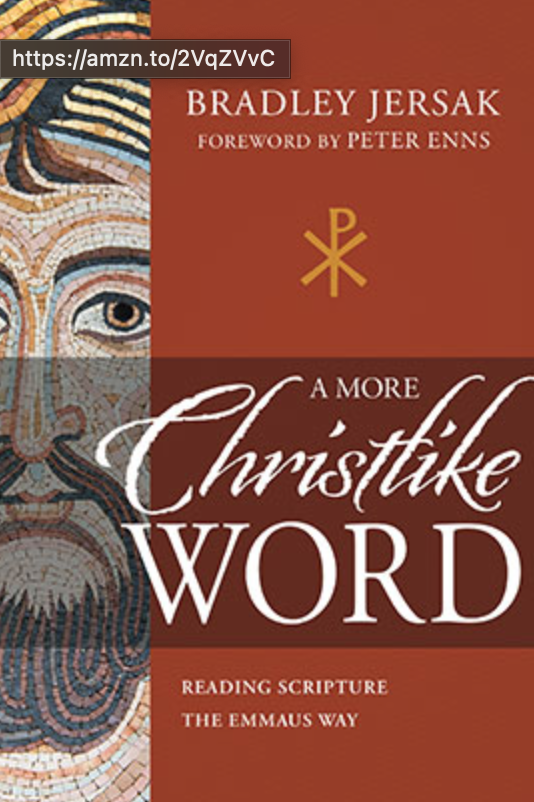In making your speech sound more religious, it becomes less true. Just say yes and no. (The Message Bible)

These next two books from Speakeasy are about how to read the Bible. I really like and recommend the first one, "How to Read the Bible Well" by Stephen Burnhope, but I am not so wild about, "A More Christlike Word," by Bradley Jersak. I acknowledge that most of my readers may not be interested in either book, but perhaps you can find something interesting in my reviews anyway.

How to Read the Bible Well by Stephen Burnhope
Full disclosure here-I haven't finished this book yet. I am enjoying it, but that is because I am genuinely interested in learning about being smarter in my Bible reading. I actually reviewed a Bible recently and I was honest about my frustrations with all the slave language in the New Testament. Look, the Bible is a collection of a lot of different writings by a lot of different people-it is a very human book-and yet, a lot of Christians still consider it to be a book worth basing our religion on. It occurred to me in my frustrations that perhaps I do not know how to read the Bible well enough. In the American Deep South, it is taken for granted that the Bible is either a total fraud or completely true in every way. The whole literal thing just blows my mind, but if it is not literal, how much should we take seriously? I have often followed the teachings of Marcus Borg who says that we can take the Bible seriously as stories with truth in them, instead of as literal facts. That point helps in many cases but not for everything. I do believe that anyone can find truth and inspiration in Biblical words but I do not think that just the average Bible reader knows how to read the Bible well. Context is everything and we are just not taught how to read writings from different time periods, unless it is Jane Austen, for the most part. I am really excited to read this book as I think it will really help me figure out how to read the Bible better and that is something I care about. Sadly, I don't think it's an area that most people care about. Burnhope posits that the Bible is fully "God's Word," but also humanly written and therefore cannot possibly be infallible and so I think that takes a sizable population of Bible readers are out. The Bible is how people understood God at that time in history in their own particular society. We can find inspiration and meaning in it for us today, but we must be careful to not give biblical stories meaning that would have made no sense back then. Therefore, was the Bible ever saying that homosexuality is an abomination when our concept of homosexuality wasn't even a thing yet? I don't think so. (For clarification, there have always been gay people but our modern ways of looking at relationships is not the same angle that people back then were writing about in the very specific passages that people usually use to say that homosexuality is wrong.) I recommend this book and can't wait to finish it. I am finding it fairly easy to read and am excited to learn more about this topic. I recommend this book, but only if you are genuinely interested in the topic and are open minded.

A More Christlike Word by Bradley Jersak
Here is another book about how to read the Bible! It makes a lot of the same points as the one above, but the tone is less academic. Frankly, I find the joke-y writing and point of view a little aggravating, as it is not very relateable to me, however, I think this book could be very relateable and a worthwhile read for others. Jersak grew up basically as a Bible thumper-obsessed with the Bible and he believed in it literally. Fortunately, as he grew up, gained more education, and met more people with different views, his own worldview started to change. Now Jersak still loves the Bible but he no longer takes it literally, and he believes looking at Christ as the "Word of God" makes more Christian sense than using the term "Word of God" for Scripture. Meaning, we should be following the example and messages of Christ first, and not give all Scripture the same weight. I can buy that, but I do not buy his posit that all of the Bible points to Christ. Taken as a whole, yes, for a Christian the Bible points to Christ as being the fulfillment of God to humanity, but can I take every single verse and ask where it points to Christ? I don't think so. To do that would be disregarding what that scripture was saying in its original point in time, something that Burnhope's book above warns against. The classic example is the biblical book, Song of Solomon. This book is gorgeous romantic literature and I used some of its verses in the liturgy for my brother and sister-in-law's wedding. The book is a poem supposedly between King Solomon and one of his brides. It is sensual and racy and wonderful and I believe, absolutely not about Jesus. People have tried to say that you can say its about the relationship between a believer and the church or Christ, but that's pretty gross, in my opinion. The book is a sexual poem-that's why it is hardly ever used in church services. Most ministers don't want to touch this book with a ten-foot pole! Of course, I do! lol To me, it shows that romantic and sexual love can be sacred and beautiful and wonderful. It shows that sex is not something to be ashamed about, and that is a great message! It is not a book pointing to Jesus. I recommend this book, only if you are someone who comes from an evangelistic, fundamentalist, literalist background. I imagine someone with that background might find it relateable and somewhat exciting, but for me personally, I am much more excited about the book by Stephen Burnhope, "How to Read the Bible Well." I will leave you with one passage I appreciated, but for the most part, I disagree with Jersak's way of reading the Bible.
“Let’s try this distinction: inspiration is not the same as exhalation. When we read that a biblical author is inspired, could it mean that God’s Spirit breathed into them and then, through their own creativity, worldviews, faith practices, religious beliefs, political biases, personal temperaments, and so forth, they exhaled a range of beautiful, unique, divine-human hybrid texts?”